When Risks Are Too High: The International Centre of Decision Choice and Analysis on the Outcomes of Its Work
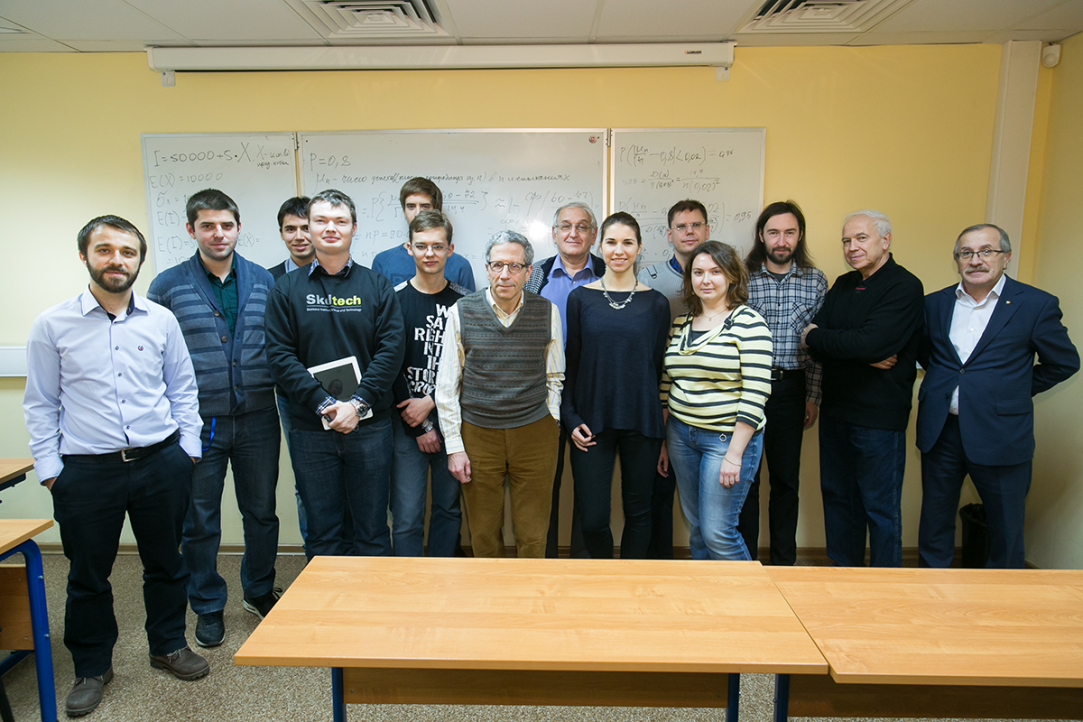
In the more than 10 years since it was established , the HSE International Centre of Decision Choice and Analysis has travelled a long way from a laboratory to an academic centre of gravity for globally renowned scholars. Fuad Aleskerov, Professor in the HSE Faculty of Economic Sciences and Director of the HSE International Centre of Decision Choice and Analysis, spoke about the evolution of the centre’s team, its research activity, and solving Arctic dilemmas through the use of mathematical models.
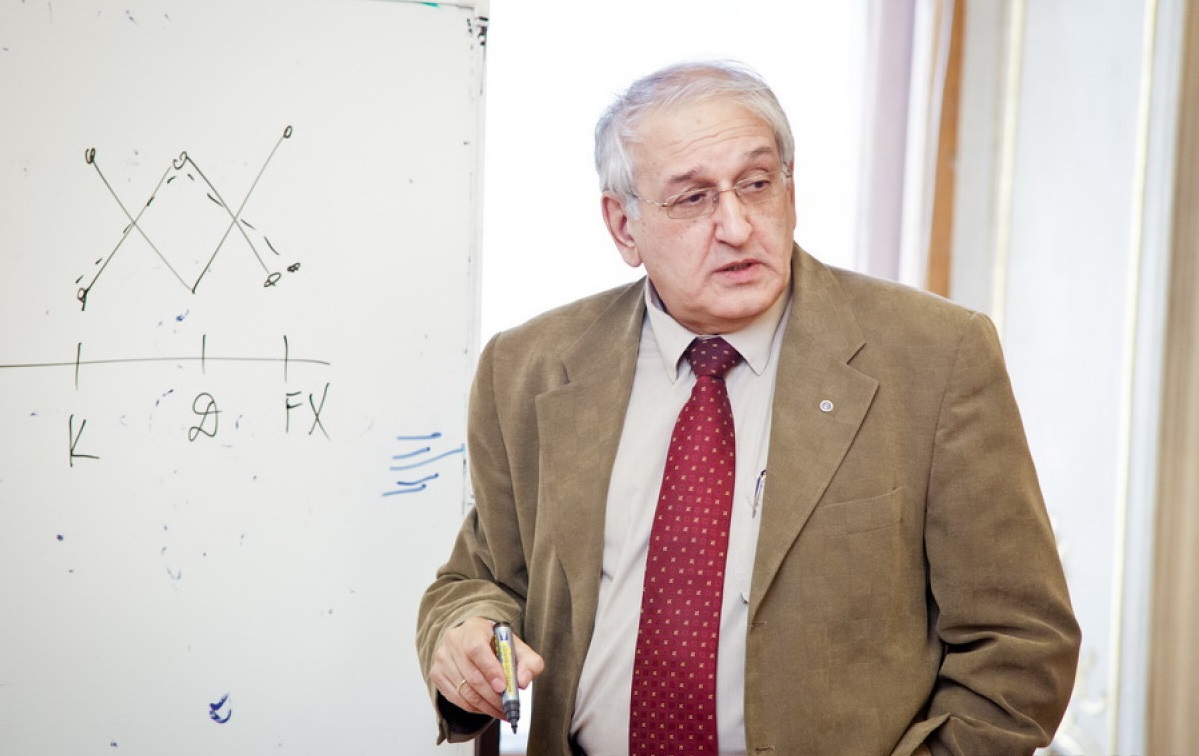
How was the International Centre of Decision Choice and Analysis created and how did its leading researchers become a part of it?
We started our path in June 2009, when a decision by the HSE University administration led to the creation of the Laboratory of Decision Choice and Analysis. A little later, in April 2010, the laboratory received the status of a Research and Study Centre, and in June 2011, we received our international status. Last year, our department was reclassified from an ‘international laboratory’ to an ‘international centre’.
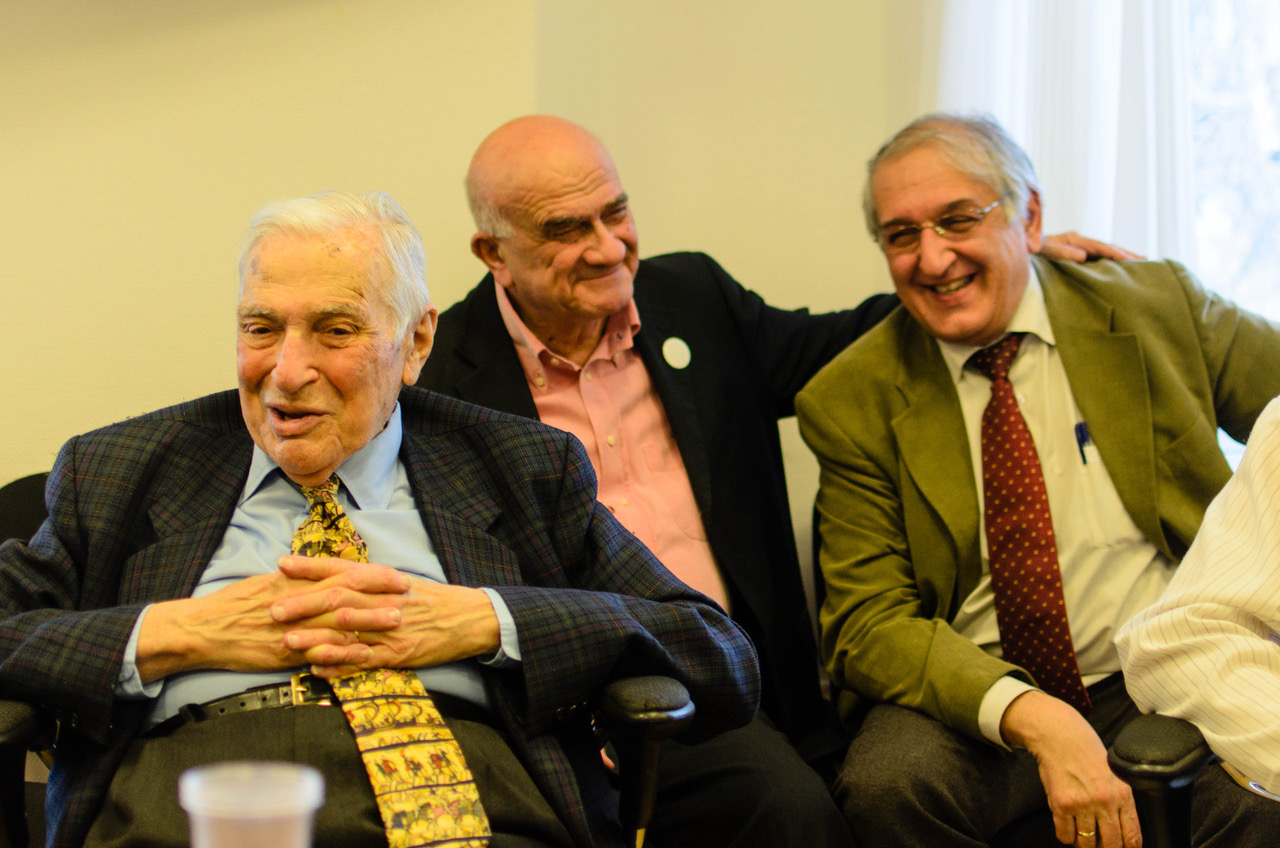
The initial team included researchers who had already worked at HSE University, as well as colleagues whom I had invited to the Department of Mathematics at the Faculty of Economics (it was later restructured into the School of Mathematics). In particular, I would like to mention my colleagues and friends at the Centre – they are globally renowned researchers in decision choice and data analysis. They include Vladislav Podinovsky, specialist in multicriteria decision-making; Boris Mirkin, specialist in data analysis; Alexander Belenky, specialist in decision choice and optimization; and Alexander Lepsky, specialist in fuzzy logic and decision-making under risk and uncertainty. We were also joined by my friend Professor Eric Maskin, who by that time had already won a Nobel Prize in Economics. All together, we became the core of our centre. Later, our centre also began to attract young researchers: we have always actively invited strong students to join our team. The main prerequisites for doing so are participation in research projects and a willingness to work hard and effectively. Today, the permanent part of our team counts over 20 researchers: six Doctors of Sciences and 15 Candidates of Sciences, most of whom are young scholars under 39.
For readers who don’t have the background, what is decision choice research about?
I’ll give you one simple example. Imagine that we have a task to build a new bridge over Yakimanka. Obviously, before we start the work, we need to assess a lot of factors: how this bridge will change the transport traffic and improve transportation for passengers living in certain districts; how much the bridge will cost; and how it will impact the environment (for example, the noise in residential areas). Such problems can’t be solved by discretionary decisions since their risks and costs are too high. Here, we need to apply well-developed science, which allows to solve such problems.

How can the results of such research be used in practice?
Decision choice research covers several areas. One of them is related to psychological aspects of decision-making. We don’t deal with such issues, which is an area of focus of our colleagues in the Faculty of Psychology.
Another area is related to mathematical modelling of the decision-making process, both individual and collective. This includes a topic that is closely related to game theory – implementation of decision-making procedures by game schemes. These areas give birth to a huge number of other fields of research. The results of such studies can be used in a variety of applications in business, public administration and politics. We have a series of papers on different aspects of decision-making in political systems. One example is problems related to influence distribution between parties in different countries’ parliaments. We modelled and forecasted the results of State Duma or gubernatorial votes in Russia.
With regard to business, I used to consult and do a lot of research for various international banks and big companies. One task that banks faced involved assessing the efficiency of their offices’ operations. For the METRO AG retail chain, we segmented the multitude of customers by demand for products and created a method to offer targeted discounts for different goods. We also studied customers’ life cycles and the challenge of winning back the customers who leave.
What areas of study does the centre cover? Could you share some of your most interesting research results?
We don’t set any specific tasks for ourselves that have to be resolved during a certain period of time. There are fields in which we work, and, as Karl Popper said, ‘there are no scientific fields or branches of knowledge, there are unsolved problems in science and a need to solve them.’ That’s our principle when we have interesting tasks, both practical and theoretical.
Today, we are developing a series of data analysis models. These are completely new models of network analysis, which are related to optimizing processes in a variety of fields. They can be used to solve problems aimed at optimizing the routes of garbage trucks and the location of charging stations for electric cars, to assess the feasibility of construction and operation of new transportation hubs, and a number of others. The new methods of network analysis are also being successfully applied to analyse bigger phenomena, such as networks of international trade, food export and import, and international migration. We also have some very serious theoretical studies, in which we solve the problems of choice under risk and unambiguity. The field that I am personally attracted to is related to bibliometric analysis of papers and journals in different fields of knowledge. We have already published a paper on this topic and are planning to further develop this research.
Developing and analysing models to calculate the manipulability extent of preference aggregation rules is another interesting area of our centre’s research. We analyse different voting schemes in big and small groups for the ability of manipulation. In recent years, we have actively looked at methods for text analysis and their application in taxonomic analysis of subject areas. We study mathematical models in banking and finance, focusing our effort on analysing the models of banking regulation, assessing their sustainability, and many other problems.
I believe that our centre’s theoretical and applied studies are mutually complementary and enriching. Applied tasks lead to the development of new concepts and solution methods, while theoretical models of decision choice, analysis and making are used to solve applied tasks. Examples of theoretical models that had been developed at the centre and were later used to solve applied tasks are models of multi-criteria decision-making, models analysing preference profiles, network analysis models, preference aggregation models, pattern analysis methods, data envelope analysis models, models and methods of trust function theories.
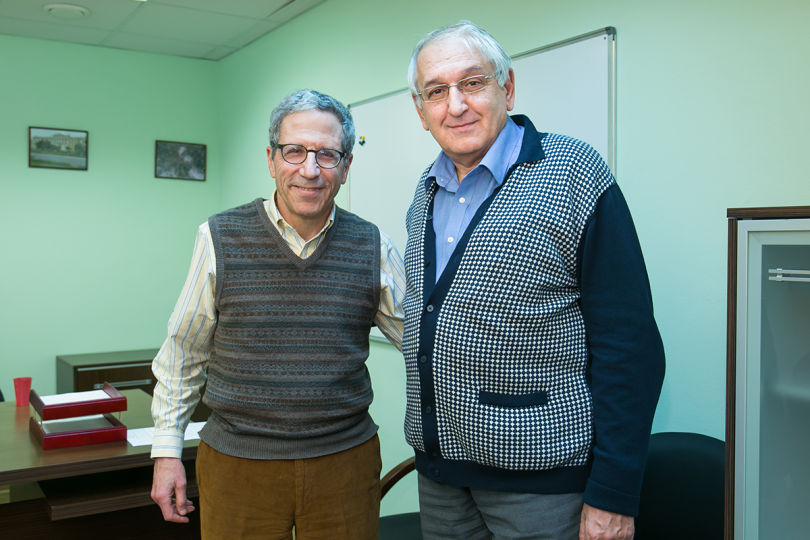
The COVID pandemic became the most frequently discussed topic for researchers in 2020. Could you tell us more about the results of your research in this area?
It’s true that a lot of papers are being written today about the pandemic, and our centre didn’t remain on the sidelines. We’ve developed models to analyse virus distribution models in countries depending on the governmental lockdown measures and the degree to which the public breaks the law. We also managed to create models that forecast the dynamics of cases by country, and to analyse the effectiveness of lockdown measures with the use of data envelope analysis. Since vaccinations have started, we’ll need to correct these forecasts to account for the number of vaccinated individuals.
I have already shared the results of our research in this field at several 2020 events:
- international scientific conference and young scientist school on Theory and Computational Methods for Inverse and Ill-posed Problems’,
- webinar on ‘Economics and Data: Opportunities for Health Care’,
- roundtable discussion on ‘International Technology Transfer: Quality of Life as a Priority of Development’,
- the conference of the World Union for Progressive Judaism (WUPJ), where I delivered a talk entitled ‘To everything there is a season: a time to embrace, and a time to refrain from embracing’ (it is a quote from Ecclesiastes).
I was also invited to organize sessions at two leading international conferences in this field – the annual INFORMS (Institute for Operations Research and the Management Sciences) society conference and the International Conference on Information Technology and Quantitative Management.
The Centre is actively cooperating with Tromsø University and Molde University College. Why exactly did you choose Arctic universities? Could you share more about this cooperation?
Why did we start dealing with Arctic problems? It happened completely by chance. Several years ago, HSE Rector Yaroslav Kuzminov asked me to participate in a workshop on Arctic problems. I was ashamed to decline and to admit that I wasn’t interested in this topic, so I agreed. The workshop was held at Myasnitskaya Ulitsa, room 311. I sat there for 20 minutes, listened to the discussion, then pulled out my notepad, which I always carry with me, and drew a model, which assessed the attractiveness of Northern sea sections for different countries. At this point, I have already presented this model as plenary sessions at two Arctic congresses and several research seminars. In 2019, the complete model was published. We have developed a very serious model that allows dividing oil and gas deposits in free Arctic territories on the basis of a set of parameters.
I’d like to emphasize that we are not suggesting to divide up territories. We are suggesting a mechanism that will help do so at the negotiating table by means of adjusting parameters, and by no means by force. This has been my key understanding of this situation since the work began. The fact is that today, many countries, even beyond the Arctic region, are expressing their interest in this region because it holds big deposits of oil and gas. And due to the melting ice, Arctic routes are becoming increasingly attractive for countries that produce and export many goods. All of these factors lead to environmental risks, since oil leakages resulting from the development of oil and gas deposits may negatively impact Arctic fauna. That’s why today, we are actively working on this problem and have a joint project funded by Norway. As part of this project, we are delivering lectures to Norwegian students on decision choice theory and practice, which are followed by their projects carried out under our supervision. These lectures were delivered in Norway at universities in Tromsø and Svalbard. They were supposed to have been held in Moscow in 2020, but due to the pandemic, they were postponed to 2021. I hope we’ll be able to do the in autumn.
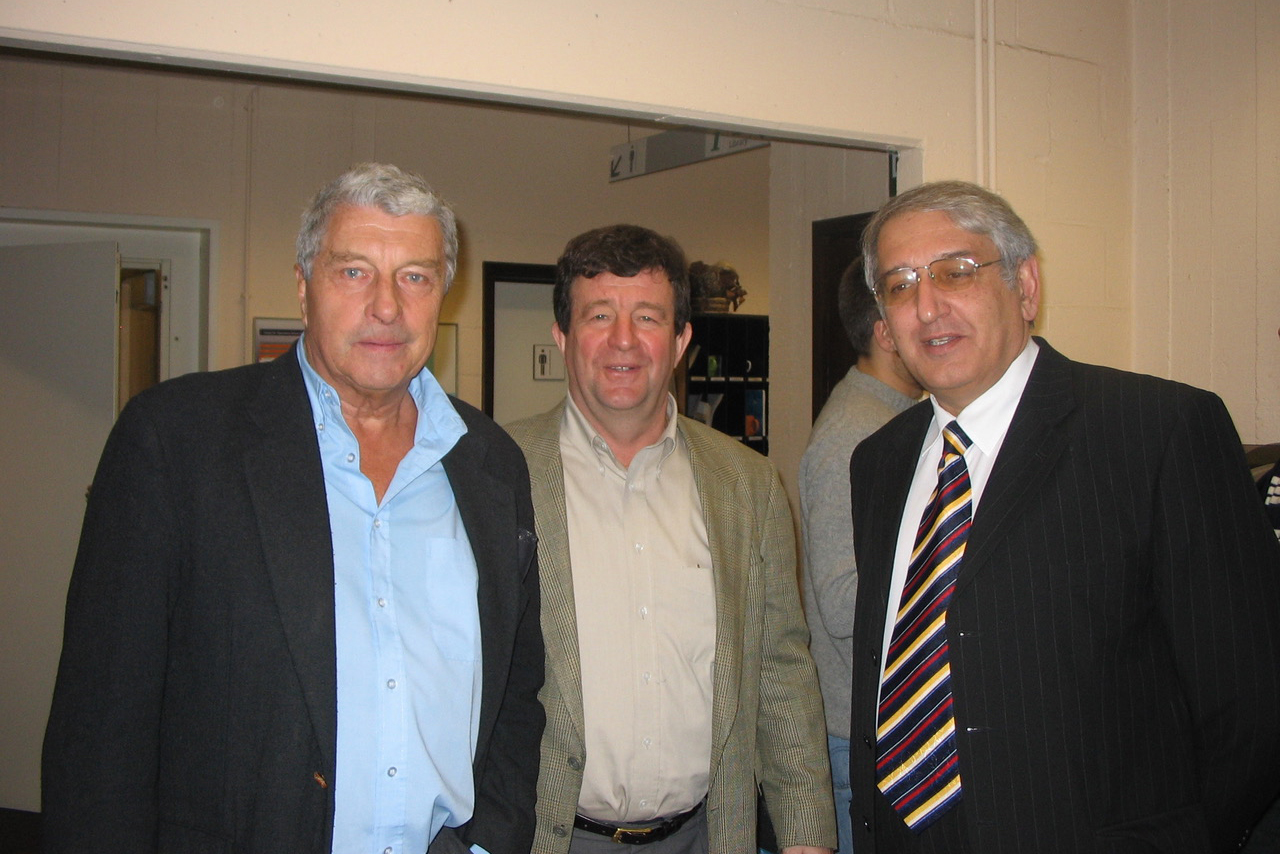
What have you achieved over the year since the centre began operating? What goals have you set for the years to come?
Our main goals are to pursue academic research at a high level and to support our young generation. The results of our work demonstrate that we are succeeding in these goals. Since the centre began operating, we have published 787 papers, over 150 of which are indexed on WoS and Scopus. Each year, we increase the number of publications in indexed journals: in Q1-Q2, 2014 – three, 2015 – four, 2016 – four, 2017 – five, 2018 – six, 2019, seven, and 2020 – eight. Before 2020, our staff members had presented papers at more than 30 international conferences each year. Since the centre was established, we have participated in 350 conferences and delivered more than 500 presentations.
Our researchers have received 12 invention certificates and patents; 16 young researchers managed to defend their theses, including:
- Andrey Subochev (2009)
- Dmitry Veselov (2012)
- Daniel Karabekyan (2012)
- Alexander Karpov (2012)
- Dmitry Shwarts (2013)
- Sofya Kiselgof (2014)
- Lyudmila Egorova (2015)
- Rita Kamalova (2016)
- Ekaterina Chernyak (2016)
- Alexey Myachin (2017)
- Mikhail Orlov (2017)
- Yulia Veselova (2018)
- Denis Tverskoy (2019)
- Dmitry Frolov (2019)
- Sergey Shvydun (2020)
- Timofey Lomonosov (2020)
Each year from 2011 to 2019, we held seasonal schools with leaders in decision choice and analysis. For example, our autumn school devoted to ‘Current trends in decision-making analysis’ in November 2018 attracted a star constellation of speakers from around the world: Itzhak Gilboa (Tel Aviv University, Tel Aviv, Israel), Theocharis Grigoriadis (Freie Universität Berlin, Berlin, Germany), Michel Grabisch (Université Paris I Panthéon-Sorbonne, Paris, France), Gabrielle Demange (Paris School of Economics, Paris, France), Saptarshi Mukherjee (Indian Institute of Technology Delhi, Delhi, India), Stefan Napel (University of Bayreuth, Bayreuth, Germany), Agnieszka Rusinowska (Centre d'Economie de la Sorbonne, Université Paris I Panthéon-Sorbonne, Paris, France), William Thomson (University of Rochester, Rochester, USA), and Katarína Cechlárová (P. J. Šafárik University Košice, Košice, Slovakia).
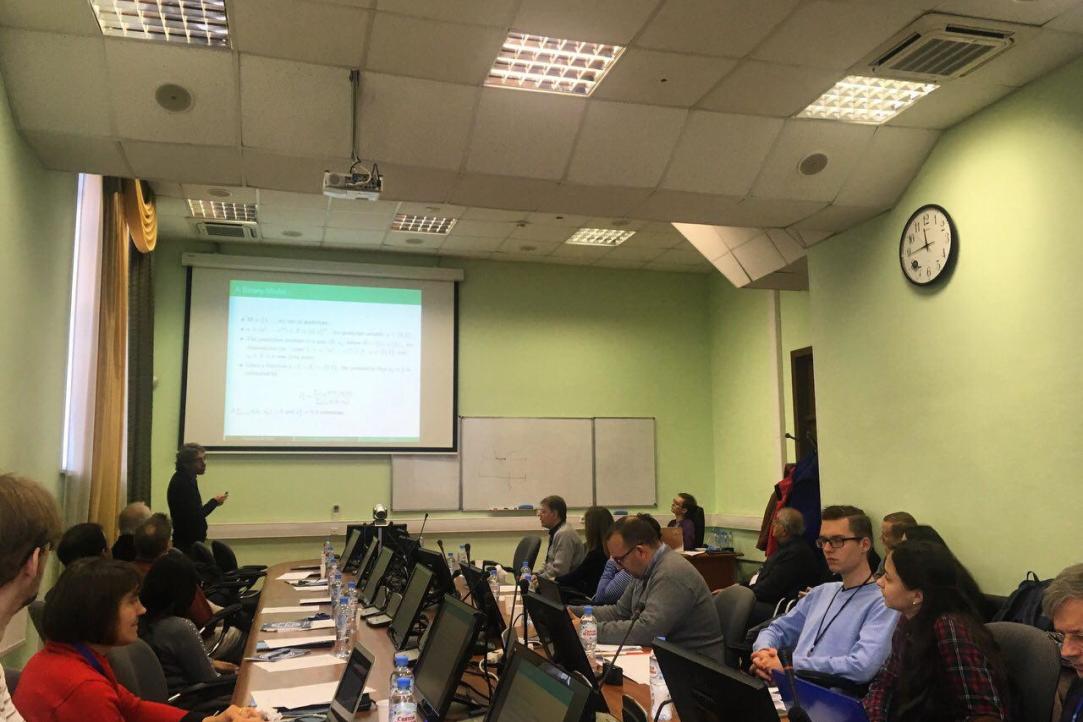
A year later, in 2019, participants of our autumn school on ‘The modern methods and models of the individual and collective choice and decision-making theory with application to network data analysis, aggregation problems, influence indices’ included Hans Peters (Maastricht University, Netherlands), Kanak Patel (Cambridge University, UK), Laszlo Koczy (Centre for Economic and Regional Studies, Hungary), Anna Khmelnitskaya (St Petersburg University, Russia) and Peter Emerson (de Borda Institute, UK).
On behalf of all staff of our centre, I am grateful to the HSE Rector and the entire university administration, the International Laboratories Management Support and the International Cooperation Office for their continuous support of our work.
See also:
'We Wanted to Create an Opportunity for Intercampus Teams to Engage in Promising Studies'
HSE University has announced the winners of the Project Competition in Basic Science Research for Intercampus Departments. The competition, which the university is organising for the first time, will provide funding to 10 research teams working on five topics. Four of the winning projects will be implemented by new research departments formed as a result of the competition.
Research Reveals RNA's Role in Cancer Progression
An international group of scientists and medical specialists, including HSE researchers, examined the role played by microRNA (miRNA) and long non-coding RNAs on the progression of ovarian cancer. Having analysed more than a hundred tumour samples, they found that miRNA can prevent cell mutation while long non-coding RNAs have the opposite effect of enabling such mutations. These findings can help design new drugs which act by regulating miRNA concentrations. The study was published in the International Journal of Molecular Sciences.
‘We Managed to Bring Together Specialists in AI, Pure Mathematics, and Neurobiology’
In early September, the HSE University Faculty of Computer Science hosted the international conference Computer Methods of Cognitome Analysis. The event was organised by the International Laboratory of Algebraic Topology and Its Applications at the faculty.
Russian Researchers Propose New Approach to Studying Facial Emotion Recognition
Researchers of the HSE University and the Southern Federal University (SFedU) have tested a new method for studying the perception of facial emotional expressions. They suggest that asking subjects to recognise emotional expressions from dynamic video clips rather than static photographs can improve the accuracy of findings, eg in psychiatric and neurological studies. The paper is published in Applied Sciences.
Academics Started Working Even More During the Pandemic
Academics’ work week became even longer during the pandemic. This is true of researchers from different countries, independently of their gender and specialisation, an international research team with HSE University participation found. Their working time during the pandemic was 51 hours compared to the usual 40. The increased number of working hours per week seems to have become part of the new academic norm. The results of the study were published in the Plos One journal.
HSE Researchers Develop New Method for Analysing Genetic Admixture of Populations
Researchers of the HSE International Laboratory of Statistical and Computational Genomics together with their international colleagues have proposed a new statistical method for analysing population admixture that makes it possible to determine the time and number of migration waves more accurately. The history of Colombians and Mexicans (descendants of Native Americans, Spaniards and Africans) features two episodes of admixture that occurred about 350 and 200 years ago for Mexicans and 400 and 100 years ago for Colombians. The results were published in the Plos Genetics journal.
Pivot to the East: A Comprehensive Study of the Cultural and Civilisational Centres of the Non-Western World is the Top Priority
China and the Chinese world, South Asia, Southeast Asia, the Arab countries, Iran, Turkey, Central Asia and Africa are gaining new significance in Russia’s foreign policy. However, we do not know enough about the Eastern countries. It is necessary to change the priorities in education, starting from grammar school. Prospects for the development of domestic Oriental studies in the context of the new stage in the development of the system of international relations were discussed at a round table at HSE University.
‘I Admire HSE Students’ Eagerness to Learn, to Discuss, to Broaden Their Perspectives’
Robert Romanowski was a ‘Digital Professor’ at HSE University in November 2021. In his interview for the HSE News Service, he talked about the specifics of online teaching, his course on Strategic Branding, and the skills that are essential for marketing professionals today.
Russia and Africa: Time to Expand Cooperation
There is major potential for economic and humanitarian cooperation between Russia and African countries. Particularly, Russian organisations and universities can help transfer competencies and knowledge in the fields of agriculture, energy, industrial production, environmental management, climate change, and public administration. Experts and representatives of African embassies in Russia discussed these issues at the round table ‘Russia-Africa Sharing Knowledge’ hosted by HSE University.
The Brain in Space: Investigating the Effects of Long Spaceflights on Space Travellers
As part of an international project conducted with the participation of Roscosmos and the European Space Agency, a team of researchers used differential tractography to analyse dMRI scans ofcosmonauts’ brains and found significant changes in brain connectivity, with some of the changes persisting after seven months back on Earth. The paper is published in Frontiers in Neural Circuits.


